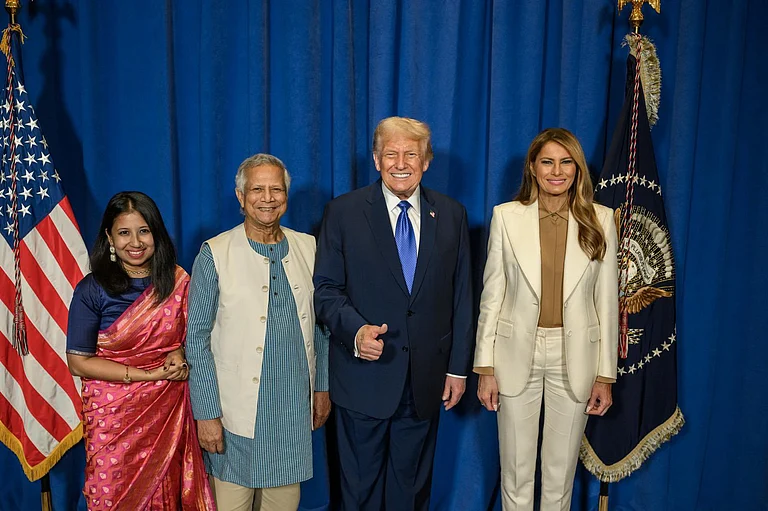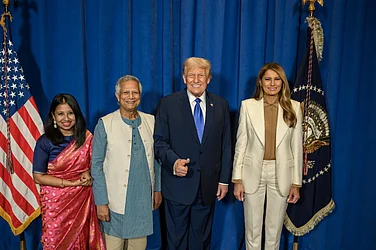After numerous people were killed and thousands injured in days of fighting over the distribution of government jobs, police imposed a strict curfew across Bangladesh on Saturday and military forces patrolled parts of the capital to quell further violence.
The protesters are demanding an end to a quota system that reserves up to 30 per cent of government jobs for relatives of veterans who fought in Bangladesh's war of independence in 1971 against Pakistan. They argue the system is discriminatory and benefits supporters of Hasina, whose Awami League party led the independence movement, and they want it replaced with a merit-based system.
Hasina has defended the quota system, saying that veterans deserve the highest respect for their contributions to the war, regardless of their political affiliation. The chaos highlights cracks in Bangladesh's governance and economy and the frustration of youths who lack good jobs upon graduation.
Bangladesh Quota Protests | Latest Top Points
Curfew Imposed - Police imposed a strict curfew across Bangladesh and military forces patrolled parts of the capital Saturday to quell further violence after what was likely the deadliest day yet in the weeks of protests despite a ban on public gatherings. Reports vary on the number of people killed Friday, with Somoy TV reporting 43. The Daily Prothom Alo newspaper reported 103 people were killed since Tuesday.
Shoot-at-Sight Order - The curfew began at midnight and was set to relax from noon to 2 p.m. to allow people to buy essentials before being put back in place until 10 a.m. Sunday. A “shoot-at-sight” order was also in place, giving security forces the authority to fire on mobs in extreme cases, said lawmaker Obaidul Quader, the general secretary of the ruling Awami League party.
Communication Blocked - Authorities moved to block online communications by banning mobile and internet services. Some television news channels also went off the air, and the websites of most Bangladesh newspapers were not loading or were being updated.
Prison Break - Local media reported that some 800 inmates fled from a prison in Narsingdi, a district north of capital Dhaka, after protesters stormed the jail facility and set it on fire Friday. Meanwhile, some key government websites, including that of Bangladesh's central bank and the prime minister's office, appeared to have been defaced by hackers.
Refugees Flee - Over 360 more citizens of India, Nepal and Bhutan on Friday crossed over to Meghalaya from the violence-affected Bangladesh, taking the total number of people taking refuge in the state to over 670, officials said, PTI reported.
Friday Meeting - Representatives from both sides met late Friday to find a resolution. At least three student leaders were part of the meeting in which they demanded a reform in the quota system, an opening of student dormitories across the country and the stepping down of university officials for failing to prevent violence on the campuses.
Opposition Supports Protests - The protests are also backed by the main opposition Bangladesh Nationalist Party that has vowed to organise its own demonstrations with many of its supporters joining in the students' protests. A BNP statement Friday said its supporters were not responsible for the violence and the party does not support any sabotage for political reasons.
Political Tensions - The Awami League and the BNP have often accused each other of fueling political chaos and violence, most recently ahead of the country's national election, which was marred by a crackdown on several opposition figures while Hasina's government accused the party of attempting to disrupt the vote.
Supreme Court To Hear Issue On Sunday - Earlier, Hasina's government had halted the job quotas following mass student protests in 2018. But in June, Bangladesh's High Court nullified that decision and reinstated the quotas after relatives of 1971 veterans filed petitions. The Supreme Court suspended the ruling, pending an appeal hearing, and said in a statement it will take the issue up Sunday. Hasina has called on protesters to wait for the court's verdict.
(With AP Inputs)










.jpg?auto=format%2Ccompress&fit=max&format=webp&w=768&dpr=1.0)
















